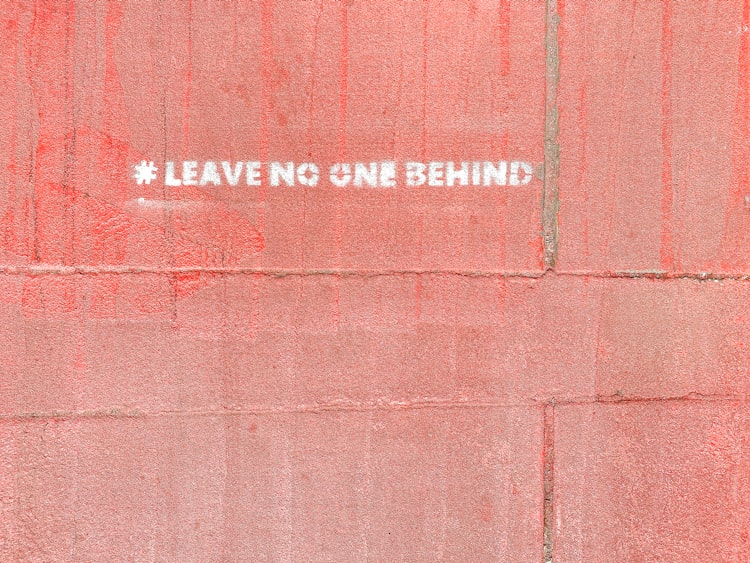Mistakes, catastrophes, and the climate crisis

Hello, grownups!
Most of us have the luxury of our mistakes not mattering very much. Say - and this is a totally made-up story and definitely not something that I did at my first grownup office job - you send an email to a colleague complaining that your boss is making you work late just because SHE doesn't have a life... and you accidentally CC your boss on that email. Whoops! Definitely a bad day for you, but ultimately not something that's going to alter the course of history.
Luckily, this hypothetical-person-definitely-not-21-year-old-me didn't have any real responsibility, so the plentiful mistakes she made didn't really matter. Their consequences were felt by her, sure, but no-one else. They were mistakes, but not catastrophes.
Although, of course, the more responsibility you have, the more your errors matter.
--
It's hard to think of many individuals who had more personal responsibility in the 20th century than Mao Zedong. Between 1949 and 1976, he maintained almost complete control over a country of 900-million people. On that scale, his mistakes really mattered.
Mao's overarching goal as leader of the People's Republic of China was to modernize the country. Before he took over, the economy was poor and made up largely of feudal system of small-scale rural farming, and he wanted China to become an industrialized world power. He did this through a series of Five-Year Plans. The first one, supported by the Soviet Union, went pretty well: it laid a solid foundation for a number of industries, like manufacturing steel and cement, and the national income grew at 9% a year between 1952-1957. Awesome! So, there was plenty of enthusiasm to try another one.
The second Five-Year Plan was nicknamed the Great Leap Forward. The plan was to continue to expand heavy industry and bring more property into collective ownership, and also to improve the living standards across China. One of his core goals was to improve public health through the rollout of a mass vaccination campaign, and by eradicating the vermin that spread disease. Seems - intuitively - like a great idea, right?
Always one to understand the power of pithy messaging, Mao packaged this plan into a campaign against the "Four Pests": flies, mosquitos, rats, and sparrows. Posters were put up all around the country encouraging families (especially children) to destroy as many of them as possible. Bounties were offered for villages that produced more pest carcasses than their neighbours. These animals were labelled "enemies of the Chinese people", and citizens were told that killing them was no less than their patriotic duty.
Sparrows, by the way, were included not because they spread disease, but because they impact agricultural yields by eating grains. One party official is recorded saying that "birds are public animals of capitalism" - I kid you not!

Over 20 million kilograms of mosquitos and flies were killed, 1.5 billion rats, and 1 billion sparrows. The campaign was wildly successful.
The campaign was too successful.
Because sparrows don't just eat grain. They also eat insects.
Insects like locusts.
In the first year of the campaign, food yields did - indeed - increase slightly, because sparrows weren't nibbling the grain.
But in the second year, with no predators, the population of locusts exploded.
Grain yields plummeted.
And over the next three years, somewhere between 20-45-million people starved to death.
--
Here's the thing about mistakes: usually, a mistake is not a catastrophe. Mao and other party leaders made a mistake when they thought killing sparrows would improve the quality of life for their citizens. But the famine was not only caused by the Four Pests campaign; it was caused by the whole political system around it.
The 1950s was a terrifying time to be in politics in China. It was the beginning of a movement called the Anti-Rightist Campaign, an attempt to purge any ideological traitors from the government. Anyone whose beliefs were considered too capitalist, too individualist, or in any way critical of the state... risked being accused of being a "Rightist" and publicly humiliated, sent to a labour camp, or executed. In just 1957, nearly 300,000 people were persecuted as Rightists.
This is not the kind of environment that encourages people to speak up when things are going wrong.
Some people tried, anyway. Ornithologist Tso-hsin Cheng, for instance, warned that the sparrow campaign was a bad idea, and was rewarded for his efforts by being kept in isolation in a cowshed for six months.
So put yourself in the shoes of a local government administrator. The central authorities have give you a target of grain to produce, and they've told you about a number of wonderful shiny new farming practices to reach that target. These farming practices involve untested ideas from the Soviet Union, like planting crops very close together because the same types of plants can't compete with each other (they can) and ploughing more deeply into the ground (which doesn't work in the types of soil more common in China).
And then, imagine that your crops fail. Utterly fail. The shiny farming methods are duds, and half of what you do manage to grow is devoured by locusts. You're also just unlucky, and get hammered by unusually bad droughts and floods that year. You don't know that this is happening all around China, of course, because nobody else is being honest about their struggles, either.
And now you have to submit a report to the central planning committee, who are all mega-jazzed about their hot new farming innovations and clever sparrow extermination policy. And you know exactly what happens to people who displease them.
So, what are you going to do?
You're going to lie. You're going to say that you hit your grain targets.
And then, because your superiors also know what happens to insufficiently loyal politicians, they're going to lie too, and inflate the numbers even more.
And their superiors are going to lie.
Until you get all the way to the central planning committee, looking at the reported grain yields, thinking sweet! We've got so much extra grain.

So, here's the truly sad part of the story: central planners distributed food to the areas that - on paper - needed it the most. So they collected food from starving farmers and redistributed it to urban areas, where there already was enough food. They diverted more land away from food production, and told people to grow inedible crops like cotton, or sent more farmers to work in iron and steel production.
And between 1958-1960, China exported a substantial amount of grain.
Now, it’s actually hotly contested amongst historians how much Mao actually knew about the famine. There are plenty of stories about local officials putting on elaborate shows to pretend that everything was fine. For instance, when Mao visited Henan province in 1958, local officials got farmers to remove shoots of grain from fields all around the area and transplant them all into a single field to show Mao what appeared to be a bumper crop of wheat. It was political suicide to say anything about the famine, lest you be seen as a traitor to the cause, and officials spread conspiracy theories about how peasants were just pretending to be hungry to sabotage the country's progress.
But, there are other sources that suggest Mao might have known, and accepted the deaths of millions of people as a “you’ve got to break some eggs to make an omelette” sort of thing, and kept exporting grain and refusing foreign aid in order to save face. Hard to know for sure, either way.
--

Eventually, Mao’s party realised that killing sparrows hadn’t been a great idea. Sparrows were quietly subbed out for bed bugs as one of the Four Pests. Thousands of sparrows were imported from the Soviet Union. But it was too late, and the damage had been done.
Yu Dehong, the secretary of a party official, wrote in 1959:
I went to one village and saw 100 corpses, then another village and another 100 corpses. No one paid attention to them. People said that dogs were eating the bodies. Not true, I said. The dogs had long ago been eaten by the people.
20-45-million people starved to death. By the end, some of them ate each other.
--
The Four Pests campaign was a mistake that became a catastrophe. It became a catastrophe because all the systems that should have identified the mistake, and then allowed it to correct, failed. The mistake was scientific, but the catastrophe was political.
Anyway, I’ve been thinking about this a lot recently, because the climate emergency is going to trigger a lot of crises over the coming decades. More wildfires, more floods, more droughts, more pandemics. We need to invest in adaptation and start thinking about how we’re going to make our communities more resilient to these crises.
And the only thing that can stop those crises from becoming catastrophes is stronger political systems.
How do we build those? I dunno, friends! I’m just a person who writes stories and thinks way too much about Buffy the Vampire Slayer. I suspect that the answer will look different depending who you are, where you are, and what work you like doing. I recently came across a toolkit called “Actions Against Climate Breakdown” that had some pretty good ideas.
But it’s an important job, and it needs all of us. It needs you.
Wishing you non-catastrophic mistakes,
Sam
There’s a good summary of the Four Pests campaign in the Power Corrupts episode “Catastrophic Miscalculations”, including a quite odd story about sparrows hiding out at the Polish embassy.
There were many causes of the Great Chinese Famine, not only the Four Pests Campaign. Mao is such a controversial figure, venerated by some and demonised by others, that it can be difficult to find sources that feel objective. I’ve based this piece on a few books and articles but I don’t feel like I can full-throatedly recommend any of them. Happy to chat over email, though, if any history nerds are reading this and want to interrogate/discuss/recommend anything.
If you’d like a soundtrack while reading this piece and get hype about a coloratura soprano, may I recommend Kathleen Kim’s performance of “I am the wife of Mao Tse-tung” from John Adams’ opera Nixon in China? It SLAPS.
Updates from Sam-land
- Simon Dingle and I recorded an extremely silly episode of Take Back the Day, discussing Veblen goods and other garbage we spend money on.
- Another podcast episode: along with my Survive the Century co-creator Simon Nicholson, I had a fun interview on Stories for Earth about how video games can be used as a tool for climate communication, why finding good coverage of climate news can be so tricky, and why it’s more important than ever before to not give into nihilism. Simon is a political scientist who thinks A LOT about the political dimension of responding to the climate emergency, so it’s a good companion to this piece.
The best, best thing about writing these newsletters are the things readers send me in response. I had COMPLETELY UNDERESTIMATED how many of you are note-taking nerrrrrrrrrds because so many of you sent me brilliant suggestions in response to last week’s post about commonplace books. A special thanks/FUCK YOU 😘 to Jess, who sent me down the rabbit hole of all rabbit holes reading about Tiago Forte’s note-taking methodology (summarised there by Maggie Appleton) and finally got me to start using Roam Research. I’ll probably need to send out another update about this soon.
Hope you're enjoying the last of summer/winter, wherever you are!
xx






Member discussion